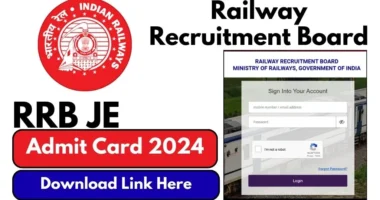“`html
Eighth Pay Commission Update: Finance Ministry Responds to Employee Concerns
The anticipation surrounding the formation of the Eighth Pay Commission has kept Indian government employees and pensioners on their toes. With financial adjustments on the horizon, many are eager to understand the implications of a potential new pay commission. The Finance Ministry’s recent response sheds light on the situation, addressing the concerns of employees and setting the stage for what’s next.
Understanding the Pay Commission’s Role
The Pay Commission plays a pivotal role in determining the pay structure for government employees in India. Every decade or so, a new commission is formed to assess current economic conditions, inflation rates, and other financial considerations. The objective is to align the compensation of millions of public sector employees with the ongoing economic landscape.
The Evolution of Pay Commissions in India
Over the years, India has seen the formation of several pay commissions, each tackling unique economic challenges. The Seventh Pay Commission, implemented in 2016, brought significant changes:
- Basic salary increases: Employees experienced an adjustment that reflected inflationary trends.
- Revised allowances: Key allowances such as the House Rent Allowance (HRA) were recalibrated.
- Performance-related incentives: A stronger emphasis was placed on rewarding productivity and efficiency.
Finance Ministry’s Latest Stance on the Eighth Pay Commission
As public anticipation grows for the Eighth Pay Commission, the Finance Ministry recently issued a statement to clarify their position. Here are the main highlights:
- No immediate plans: The Ministry currently has no concrete plans to establish the Eighth Pay Commission.
- Alternative practices: They are exploring alternative measures to address salary issues without forming a new commission.
- Regular review system: The Ministry suggests a more dynamic approach with reviews at regular intervals rather than waiting for a decade.
Implications for Employees and Pensioners
While some employees express disappointment with the delay in forming the Eighth Pay Commission, the Finance Ministry aims to address their concerns through other initiatives:
- Focus on performance-based incentives: Encouraging a meritocratic system that rewards employee efficiency.
- Adjusting allowances: Proposals to reassess critical allowances such as HRA in light of current economic conditions.
- Addressing inflation: Ensuring that employees’ compensation packages reflect ongoing inflation trends.
Looking Ahead: The Future of Public Sector Salaries
While clarity on the Eighth Pay Commission remains elusive, the Finance Ministry’s commitment to addressing employee concerns is apparent. Moving forward, a few possibilities are on the horizon:
- Incremental changes: Regular, smaller adjustments to pay scales to keep pace with inflation and economic growth.
- Technology integration: Leveraging technology to streamline performance assessment and compensation adjustments.
- Feedback mechanisms: Encouraging dialogue with employee representatives to ensure that their concerns are heard and addressed promptly.
Employee Optimism and Caution
While some employees are optimistic about regular reviews ensuring timely adjustments, others are cautious. Past delays have made them wary of promises, preferring transparency and clear timelines from policymakers.
Conclusion: Navigating Uncertainty with Preparedness
As government employees and pensioners wait for further updates on the Eighth Pay Commission, staying informed and involved is crucial. The Finance Ministry’s response indicates a shift towards more flexible, responsive methods of compensation adjustment.
Ultimately, the goal remains to ensure fair compensation for the hard-working individuals serving the Indian government, preserving their purchasing power and morale. Whether through traditional pay commissions or new adaptive systems, employee welfare will continue to be a priority.
Stay tuned for further updates on this evolving situation, as every step closer to clarity on the Eighth Pay Commission is a step toward greater economic stability for India’s public sector workforce.
“`






